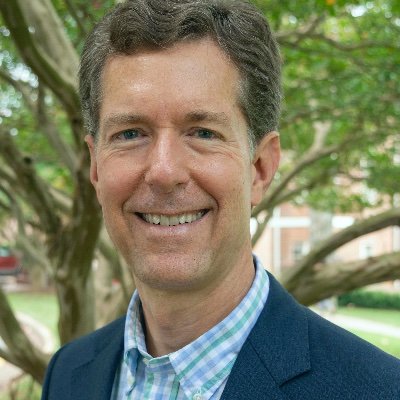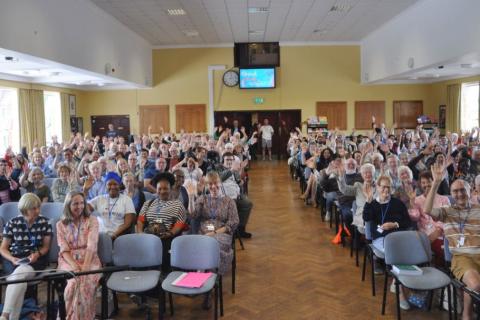
Photo by gardner-webb.edu
Since 2003, I have had the privilege of representing the Baptist World Alliance in various forms of international ecumenical dialogue. When I served as a member of the Baptist delegation to the dialogue with the Anglican Communion that year, I experienced something of a calling within my vocation: the experiences of that week helped me realize that all other aspects of my theological work seemed oriented toward and fulfilled in such opportunities to do theology in the service of the divided church.
Soon I was invited to represent the BWA in other dialogues: two series of dialogues with the Catholic Church, pre-conversations with the Eastern Orthodox Ecumenical Patriarchate, and the multilateral dialogue of the World Council of Churches’ Commission on Faith and Order.
One of the most meaningful experiences I have had in connection with these dialogues was meeting Pope Francis in a private audience that our Baptist-Catholic International Dialogue Joint Commission had with him in December 2022.
The audience took place during the final meeting of Phase III of the Baptist-Catholic dialogue, which has met annually since 2017. This phase follows Phase I, which from 1984 through 1988 explored the common commitment that both Baptists and Catholics have to Jesus Christ as Savior and Lord, and our common commission to bear witness to Christ in today’s world.
That phase also identified significant areas of disagreement that warranted further exploration, including the relationship between Scripture and tradition, the role of Mary in the life of the church, theologies of baptism and the Eucharist, and the structures of the church’s ministry.
The dialogue resumed in 2006 with Phase II, which through 2010 took up precisely those matters of notable difference, but identified a substantial and sometimes surprising degree of consensus, summarized in a theologically rich report of the dialogue titled “The Word of God in the Life of the Church.”
Phase III re-engages the summons to bear witness to Christ in today’s world by identifying concrete ways in which we might engage in common witness. In our December 2022 meeting, we were working on drafting the report from Phase III, provisionally titled “The Dynamic of the Gospel and the Witness of the Church Today.”
At the beginning of the week, we had been told that our private audience with Pope Francis preceding his Wednesday morning general audience would likely be very brief. But after Pope Francis walked into the audience hall and said in Spanish to an Argentinian Catholic theologian on our joint commission whom he recognized, “We did well, didn’t we?” (it was the morning following Argentina’s World Cup semifinal win over Croatia), he spoke to us at length in Italian, translated into English for us.
He shared with us earnestly many things that were on his mind and in his heart, from the war in Ukraine, to ecumenical challenges and opportunities, to how he hoped Baptists could help Catholics fight the “dangers of clericalism,” and back to his concerns about Ukraine.
He then invited us to join him in praying the Lord’s Prayer, each of us in our own language—a profoundly meaningful experience—before greeting each of us individually on his way out of the hall.
Pope Francis impressed us as someone who is first and foremost a pastor who happens to be serving as pope, as he did in December 2018 when our dialogue previously met in Rome, and we were briefly introduced to Pope Francis at the end of his general audience.
On that occasion, he spoke to us in English and said, “Pray for me,” and we assured him that we do. He also said, “If we do not find a way to get together, they will eat us raw” (which we interpreted as meaning, “they will eat us alive”).
Our private audience with Pope Francis in December 2022 was memorable for me for another reason. On behalf of our joint commission, elected BWA President Tomás Mackey, who is also from Argentina, presented Pope Francis with a copy of my New City Press book Baptists, Catholics, and the Whole Church: Partners in the Pilgrimage to Unity, signed by each member of the commission.
The book is rooted in the work of the joint commissions for Phase II and Phase III of the Baptist-Catholic dialogue, so we thought it a symbolically appropriate gift, also because of the connection of New City Press with the Focolare Movement.
With its Catholic roots, ecumenical membership, and shared pilgrimage toward a united humanity as a “new people born of the Gospel,” Focolare embodies the focus of Phase III of our dialogue on “The Dynamic of the Gospel and the Witness of the Church.”
I am grateful to God for the privilege of participating in the quest for Christian unity through the work of ecumenical dialogue.
If you enjoyed this article, you might like...














